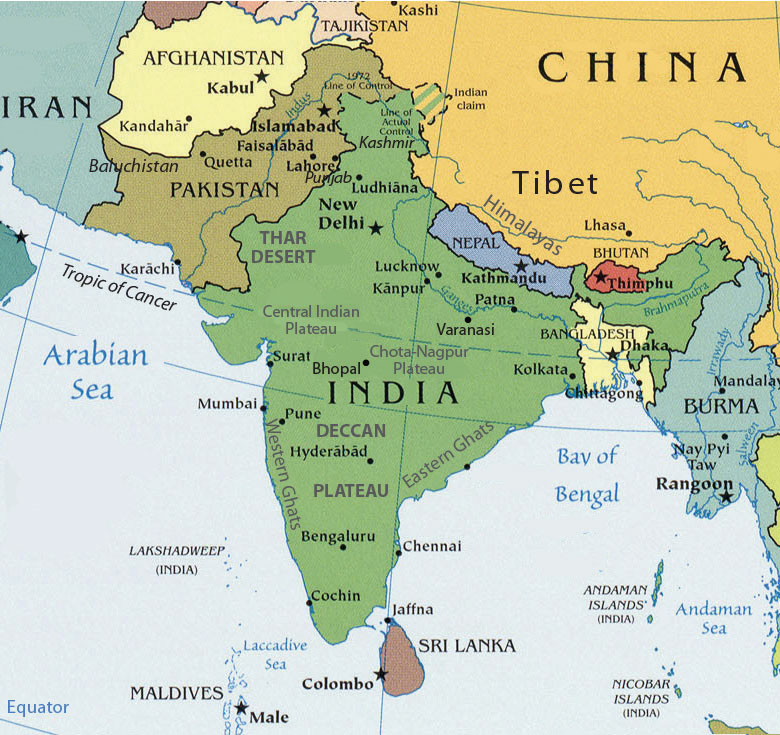5 Questions on Indian Elections and Tensions in Kashmir
Prof. S. Akbar Zaidi discusses the complicated relationship between India and Pakistan as national elections in India begin April 11.
The conclusion of British rule in the Indian subcontinent in 1947 resulted in Indian independence and the creation of Pakistan. Since then, the sovereignty of Kashmir has been at the core of the long-running and still unresolved dispute between these neighboring states, which both claim it as their own.
Dominated by its military, Pakistan has kept the Kashmir issue alive to legitimize its own authority over its diplomatic and domestic politics, says S. Akbar Zaidi, professor of Middle Eastern, South Asia and African Studies and of International and Public Affairs. On the other side of the border, India is using a heavy hand to quash the aspirations of Kashmiris demanding greater sovereignty.
Tension between the two nations—both nuclear powers—rose sharply in February, when a suicide bombing in Indian-administered Kashmir killed 40 Indian paramilitary police. India then placed large tariffs on Pakistani imports and vowed to take diplomatic steps to isolate that country. An armed skirmish resulted in Pakistan downing an Indian Air Force plane and capturing its pilot, who was later returned to India.
Here, Zaidi explains the roots of this rising conflict ahead of India’s elections, which take place between April 11 and May 19.

Q. How did we get here?
A. Over the last two decades or so, the problems of Indian Kashmir have become far more local and indigenous, a response by Kashmiris against the strong arm of the Indian state and its forces. With half-a-million Indian troops deployed in Jammu and Kashmir, there have been over 70,000 deaths resulting in localized responses to state repression, not always supported and backed by Pakistani militants. The suicide attack in February was undertaken by a young Indian Kashmiri in a group supported by Pakistani militants who had been harassed and detained by Indian forces. This attack was a local, indigenous, act of defiance and rebellion.
Q. What are some of the risks, both immediate and long term?
A. While both nations have nuclear weapons, it does not seem probable that either could start and endure a war with the other. Skirmishes continue to take place, including a foolish war started in 1999 by Pakistan’s military, followed by a major stand-off in 2002, but perhaps the oxymoronic ‘nuclear deterrence’ may have helped de-escalate the situation. Pakistan’s militants, though probably not supported by the Pakistani state or its military, in 2008 killed 165 civilians in a four-day coordinated attack in Mumbai. Yet the Indian state did not retaliate with a military strike. India’s response to the recent Kashmir suicide attack was clearly a political response and reflected the need of the incumbent Indian government hoping to retain power.
Q. How do you see the impact of Kashmiri tensions in the upcoming Indian general election?
A. If the intention was to make mileage out of the exchange for Indian Prime Minister Narendra Modi, it seems to have back-fired. The international press praised the Pakistani Prime Minister Imran Khan for showing his diplomatic skills, which most thought he did not have, by responding with the message of peace to India by returning a captured Indian Air Force pilot. Mr Modi cannot claim much success in the military operation. He has continued to raise the ‘Pakistan-terrorist’ card, but I think the Indian electorate can see through his bluster and will vote for more substantive issues, such as the economy and jobs, which affect their lives.
Q. How important is this election in India?
A. Every election in India has major consequences. The last one, in 2014, may have been the most important in decades, bringing the Bharatiya Janata Party and Mr Modi to power, breaking an electoral trend of many decades. Over the next few weeks this election will allow the Indian electorate to vote on Mr Modi’s policies and whether he has delivered on his developmental promises. India’s economy is still doing fairly well, with near 6 percent GDP growth, although the hope and expectations of people have been dampened due to unfulfilled promises. The 2016 demonetization angered people, many of whom lost their livelihoods.
In the 2014 election Modi’s opponents did not have a clear platform or leadership compared to Mr Modi’s and what he was promising. This time there will be a stronger challenge from both the electorate and political parties. If Mr Modi wins with a big majority, his anti-Muslim and anti-Dalit policies will gain further sanction, undermining India’s secular promise.
Q. Is peace in the region a possibility?
A. I believe that after India’s elections, we are more than likely to see the peace process evolving. Pakistan’s military seems to be changing its tack towards India, Kashmir and militancy. Prime Minister Khan has spoken about a peaceful settlement to all unresolved issues with India. If the Pakistan military allows him to move forward, the new Indian government’s response will determine what happens next. This hasn’t happened in the past, but don’t be surprised if we actually begin to see a new future for 1.3 billion people.
Pakistan’s military will have to completely abandon its support of militants and terrorists it houses and protects. The Indian government ought to address urgently the needs and demands of the Kashmiris with perhaps a very different treatment and response, if Jammu and Kashmir is a matter ‘strictly internal’ to India as the Indian Foreign Minister Sushma Swaraj stated some days ago. Both countries will have to think and diverge from their pasts.